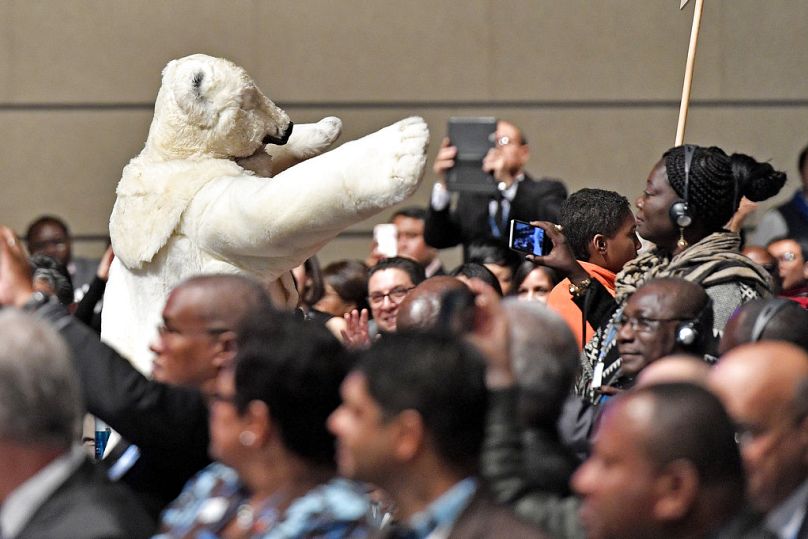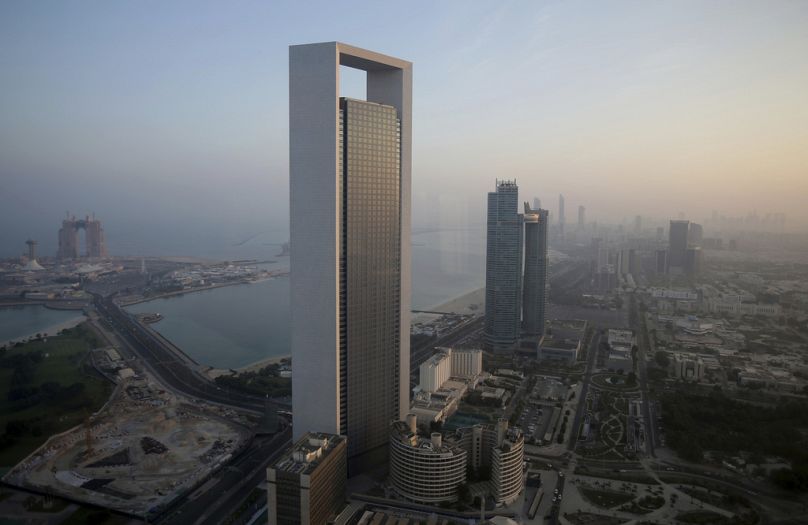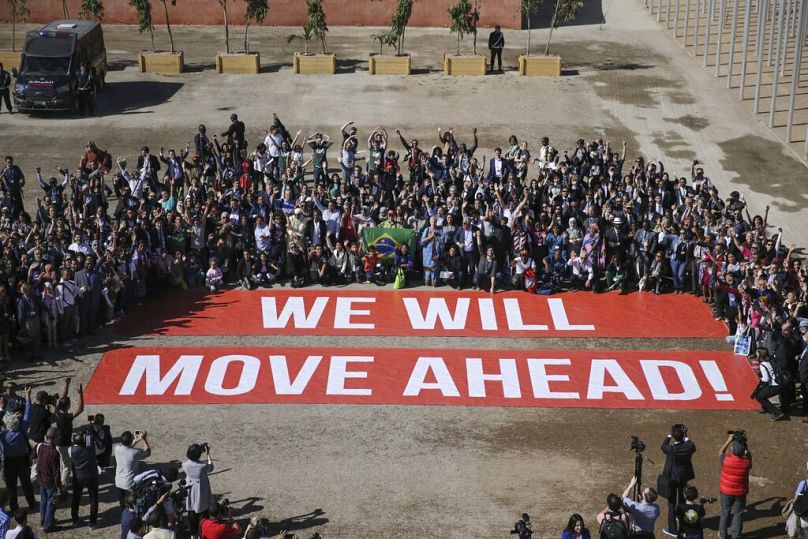Different, more flexible and more regional summits and organisations must emerge to collectively achieve the goals of the Paris Agreement, Dr Marc Nebojsa Vukadinovic and Isabelle Négrier write.
Every year since 1995, the Conference of the Parties, or COP, has brought together the member states of the United Nations to discuss climate issues.
And in 2015, during COP21, the Paris Agreement marked a turning point in the fight against global warming.
For the first time, all of the United Nations member states committed to reducing their greenhouse gas emissions, with the ambitious goal of keeping global warming below 2°C by 2100.
It was no longer a question of debates, observations or declarations of intent, but a real commitment, with figures, made in front of the whole world, for observers and future generations to see.
It was also a great success for European and French diplomacy, which managed to get the world's most polluting nations to sign up for the agreement.
Yet, here we are
But eight years have passed. Successive COPs have made little meaningful progress, and most of the progress in the fight against global warming is now being organised elsewhere, in other institutions, at other events, in bilateral relations between states, or simply under pressure from public opinion.
The framework set by governments is blatantly clear: it is up to them to implement it, and it is up to businesses to rise to the challenge.
Meanwhile, COP became emblematic of a format of major diplomatic symposia that have run out of steam, and its inherent limitations are about to be demonstrated by the upcoming event in the United Arab Emirates.
The model — bringing together all the world's nations, which is inherently laborious and complex — may have been effective in 2015, but it is now showing its limits: no global agreement has been signed since.
Worse still, the COP model now appears to be counterproductive, gradually becoming the symbol of a grand diplomatic rave against a backdrop of greenwashing. COP28, to be held in Dubai in November and December, is the most caricatured example of this.
Emirates as organisers, Emirates as polluters
It will be difficult to convince European, Asian, African or American public opinion to opt for a more sober growth model coming from the United Arab Emirates.
The small Gulf petro-monarchy, with a population of just ten million, is the sixth largest per capita emitter of CO2 in the world, at 22 tonnes per person per year.
The UAE is also the world's seventh-largest oil producer, producing and exporting nearly 4,000 barrels a day.
It is difficult to give one's blessing to an event dedicated to the fight against global warming organised by one of the world's biggest polluters and, to add insult to injury, chaired by one of the country's biggest polluters, Sultan Al-Jaber, who is both President of COP28 and CEO of ADNOC, the national oil company of the UAE.
In an open letter to world leaders and the UN on 23 May, hundreds of European and US parliamentarians called for the withdrawal of Sultan Al-Jaber as president of COP28, yet to no avail.
Turning an ecological aberration into a historic opportunity
Under these conditions, and in order to avoid fuelling future diplomatic and ecological disillusionment, we urgently need to move on.
It's time to opt for new political models to advance the fight against global warming and break our dependence on fossil fuels.
Different, more flexible and more regional summits and organisations must emerge to collectively achieve the goals of the Paris Agreement.
Europe was in the driving seat in 2015, helping COP21 to deliver a framework to structure our climate goals for the coming century.
From this point onward, French and European diplomacy must continue to assume their responsibilities by promoting the emergence of new institutions that will eventually replace the repeated COP agreements, which combine meaninglessness with impotence.
Let's not give our blessing to this COP28, which will discredit the fight against global warming.
On the contrary, let's help the states, companies and NGOs of the five continents to set up new forms of organisation, adapted to their regional realities and genuinely effective in achieving our climate objectives.
Europe has the opportunity to show its difference, to demonstrate its values and to make its citizens proud. Let's make history and serve the planet.
Dr Marc Nebojsa Vukadinovic is a Lecturer at Sciences Po and Programme Director at EuropaNova, and Isabelle Négrier is an industrialist and the executive director of EuropaNova.
At Euronews, we believe all views matter. Contact us at view@euronews.com to send pitches or submissions and be part of the conversation.



